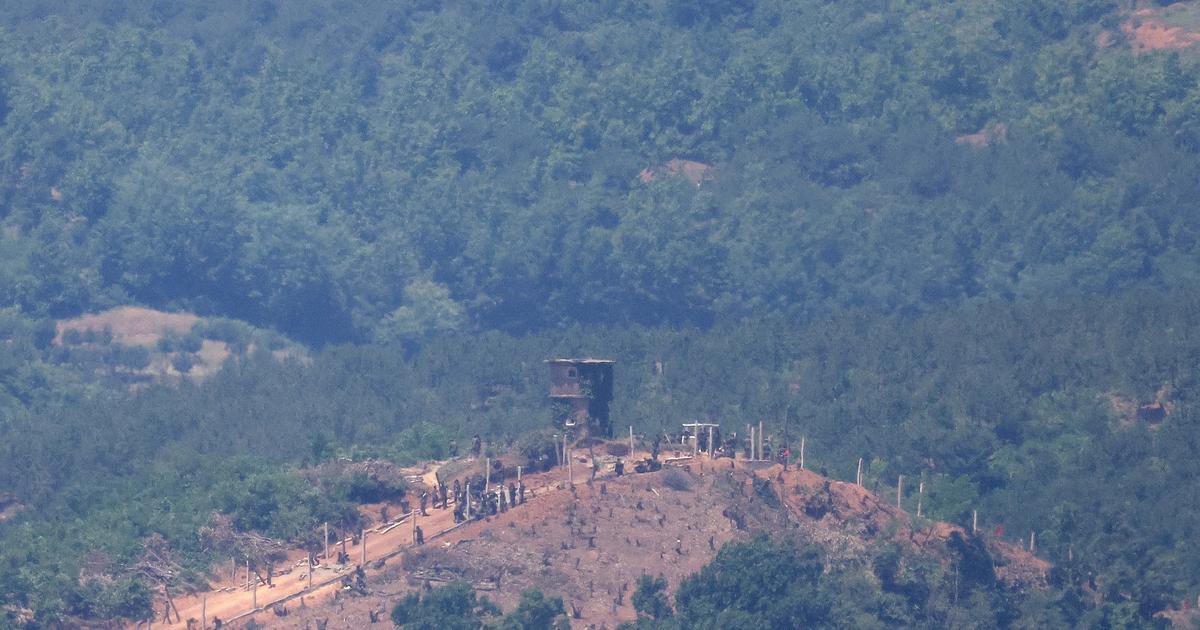North Korean Soldiers Cross DMZ Amid Heightened Tensions
North Korean soldiers briefly crossed the border into South Korea on Sunday, prompting South Korean forces to fire warning shots, the South Korean Joint Chiefs of Staff (JCS) announced on Tuesday. The incident occurred within the demilitarized zone (DMZ) that separates the two Koreas, a heavily fortified no-man’s land established since 1953. This crossing was met with immediate warnings and shots from the South Korean military, forcing the North Korean soldiers to retreat back to their side.
The DMZ is one of the most heavily fortified borders in the world, but the actual military demarcation line within it is marked only by simple signs. Clashes between soldiers from the two countries who patrol there occur intermittently. Sunday's incident comes at a time of heightened tension between North and South Korea, making this episode particularly alarming.
Tensions Escalate with Garbage Balloons and Loudspeaker Propaganda
In recent weeks, North Korea has been sending hundreds of balloons filled with trash, including cigarette butts, toilet paper, and even animal excrement, into South Korea. These actions are perceived as retaliatory measures against South Korean activist groups that send anti-Kim Jong-un leaflets, American banknotes, and USB drives containing K-pop and South Korean TV dramas into North Korea.
The South Korean government has responded by suspending a 2018 military deal aimed at reducing border tensions and resumed its own loudspeaker propaganda broadcasts over the border. North Korea has similarly set up its loudspeakers, suggesting an impending revival of the loudspeakers duels that were frequent before 2018. Such actions have escalated the risk of further confrontations at the border.
Impact of Abandoning the 2018 Agreement
The suspension of the 2018 military agreement allows South Korea to resume live ammunition exercises near the border, further escalating the potential for conflict. This agreement had initially been part of a broader inter-Korean rapprochement promoted by former South Korean President Moon Jae-in, who had met North Korean leader Kim Jong-un multiple times.
Previously, in 2020, North Korea had reacted to the South's propaganda leaflet campaign by cutting all inter-Korean communication links and demolishing an inter-Korean liaison office. Any further deterioration in relations could have severe implications, as demonstrated by past threats from North Korea to fire upon South Korean loudspeakers.
- In the closely watched geopolitical theater of the Korean peninsula, any shift in military posture or diplomatic tone can reverberate far beyond the region. The situation between North and South Korea, both technically still at war since the Korean Armistice Agreement of 1953, inherently carries the risk of sudden escalations.
- The ongoing brinkmanship could also draw international actors into the fray, particularly the United States, China, and Japan, each with vested interests in the stability of the region. The U.S. maintains a military presence in South Korea as a deterrent against North Korean aggression, a policy likely to be tested as border skirmishes continue.
- Furthermore, these incidents hold particular significance for North Korean defectors living in South Korea, many of whom are involved in the propaganda leaflet campaigns. The South Korean legal system has struggled to balance national security concerns with the rights to free speech and activism, as evidenced by the Constitutional Court's invalidation of a 2020 law banning leaflet dispatches, citing freedom of expression.






